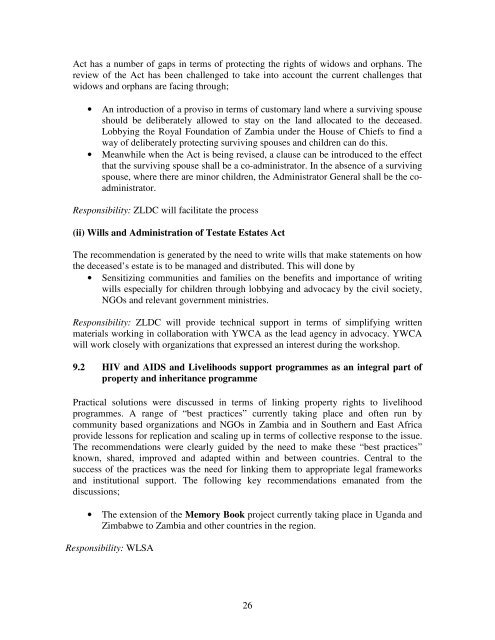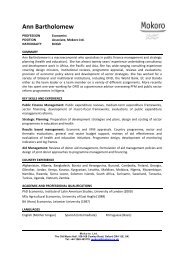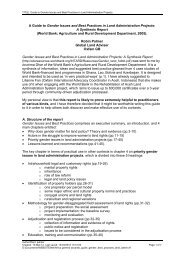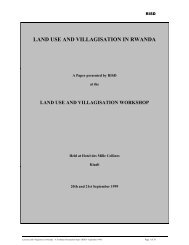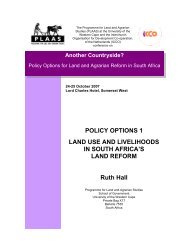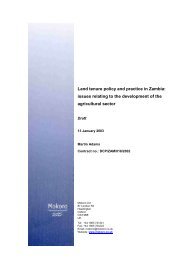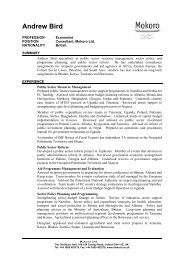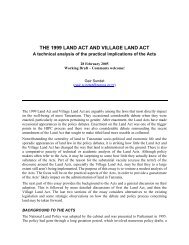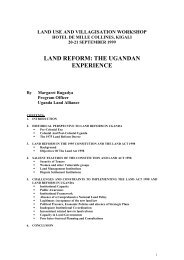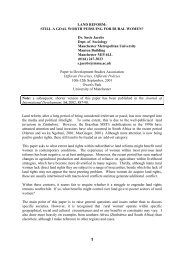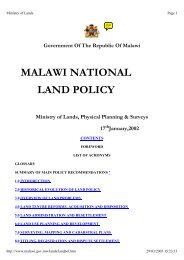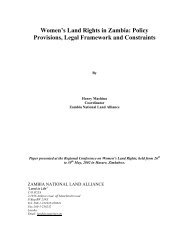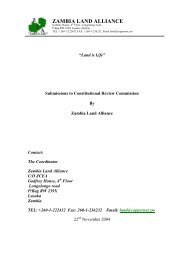Download - Mokoro
Download - Mokoro
Download - Mokoro
- No tags were found...
Create successful ePaper yourself
Turn your PDF publications into a flip-book with our unique Google optimized e-Paper software.
Act has a number of gaps in terms of protecting the rights of widows and orphans. Thereview of the Act has been challenged to take into account the current challenges thatwidows and orphans are facing through;• An introduction of a proviso in terms of customary land where a surviving spouseshould be deliberately allowed to stay on the land allocated to the deceased.Lobbying the Royal Foundation of Zambia under the House of Chiefs to find away of deliberately protecting surviving spouses and children can do this.• Meanwhile when the Act is being revised, a clause can be introduced to the effectthat the surviving spouse shall be a co-administrator. In the absence of a survivingspouse, where there are minor children, the Administrator General shall be the coadministrator.Responsibility: ZLDC will facilitate the process(ii) Wills and Administration of Testate Estates ActThe recommendation is generated by the need to write wills that make statements on howthe deceased’s estate is to be managed and distributed. This will done by• Sensitizing communities and families on the benefits and importance of writingwills especially for children through lobbying and advocacy by the civil society,NGOs and relevant government ministries.Responsibility: ZLDC will provide technical support in terms of simplifying writtenmaterials working in collaboration with YWCA as the lead agency in advocacy. YWCAwill work closely with organizations that expressed an interest during the workshop.9.2 HIV and AIDS and Livelihoods support programmes as an integral part ofproperty and inheritance programmePractical solutions were discussed in terms of linking property rights to livelihoodprogrammes. A range of “best practices” currently taking place and often run bycommunity based organizations and NGOs in Zambia and in Southern and East Africaprovide lessons for replication and scaling up in terms of collective response to the issue.The recommendations were clearly guided by the need to make these “best practices”known, shared, improved and adapted within and between countries. Central to thesuccess of the practices was the need for linking them to appropriate legal frameworksand institutional support. The following key recommendations emanated from thediscussions;• The extension of the Memory Book project currently taking place in Uganda andZimbabwe to Zambia and other countries in the region.Responsibility: WLSA26


